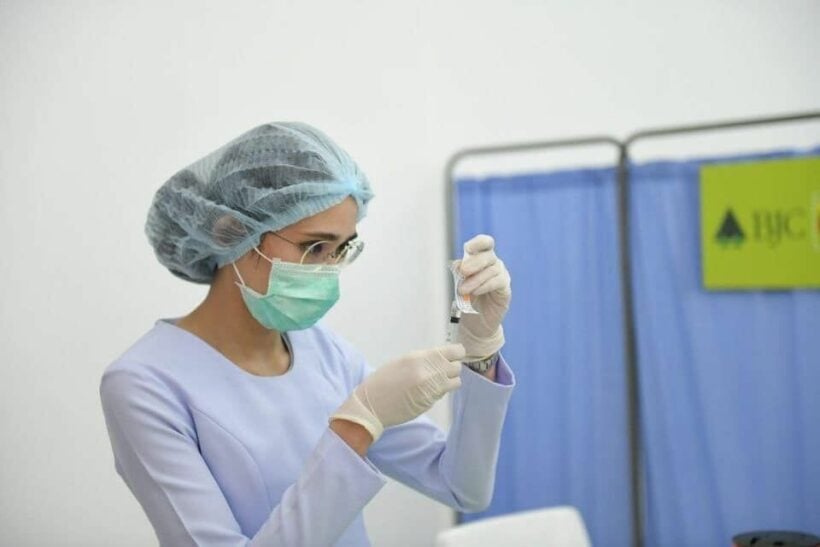Thailand low on Covid-19 vaccines, priority given to at-risk groups

Thailand is running low on vaccines, the spokesperson for the Centre for Covid-19 Situation Administration acknowledged today. With the most severe wave of Covid-19 continuing to rise, and the emergence of the more transmissible Delta variant, health officials are giving priority to those most at risk of a severe infection.
The elderly and those with certain underlying health conditions, particularly in Bangkok where the rapid-spreading mutated strain is more prevalent, will be given priority in the vaccination programme, according to the Ministry of Foreign Affairs Department of Information News Division director Pensom Lertsithichai, who reported the daily CCSA briefing in English.
“With the spread of the Delta variant, the Ministry of Public Health is now focusing on inoculating vulnerable groups as fast as possible.”
So far, 10.7 million doses of the Covid-19 vaccine since February 28. Only 2.9 million people in Thailand are fully vaccinated against coronavirus. Early on in the mass vaccination campaign, the islands Phuket and Koh Samui were given priority due to their “economic significance.” Vaccinations were accelerated on the islands to prepare for the reopening to foreign tourists.
Many expats who live on the islands have been vaccinated through the government’s campaign. A number of expats who work as English teachers in other provinces have also been vaccinated, with registration set up for them by the schools.
For foreign residents in Bangkok, the epicentre of in the latest wave and where the Delta variant is most prevalent, the registration website for those 60 and over, or who have underlying health conditions, has been closed for weeks. The thailandintervac.com website says “the current round of vaccination appointments is full.”
Pensom says foreign residents are still included in the vaccination campaign, saying “we’d like to assure you that the government’s policy in providing vaccines and assistance residing in Thailand, everyone on Thai soil, will continue.”
“The CCSA acknowledges that there will be vaccine shortages for other age groups and we understand this might cause frustration as well as confusion to many of you, particularly our foreign audience who are waiting for their vaccine appointments.”
Many have criticised the Thai government for heavily relying on the Thai-made AstraZeneca vaccine for its nationwide immunisation campaign. Thai manufacturing plant Siam Bioscience, which is wholly owned by a subsidiary of the Crown Property Bureau, is poised to be AstraZeneca’s Covid-19 vaccine distribution hub for Southeast Asia, but last month several countries reported delays in deliveries, reportedly due to production problems in Thailand.
Pensom credited the United States, China, and Japan governments for helping Thailand with vaccine supplies. She says the Thai government is working to procure more vaccines.
“The government is negotiating with vaccine manufacturers and governments abroad to help meet our vaccine demand as soon as possible.”
While the US has included Thailand in its global effort to donate vaccine doses to countries seriously impacted by the pandemic, the US government will not be providing vaccines to its citizens overseas.
The Chinese government recently donated doses of the Sinovac vaccine to Thailand, and in turn, Chinese citizens in Thailand were able to get inoculated under their home country’s global campaign.
The Embassy of France in Thailand has organised a vaccination campaign for French nationals. French nationals living in Thailand, who are 55 and older, can now register for a Johnson & Johnson Covid-19 vaccine at several Bangkok Hospital locations.
Latest Thailand News
Follow The Thaiger on Google News:


























